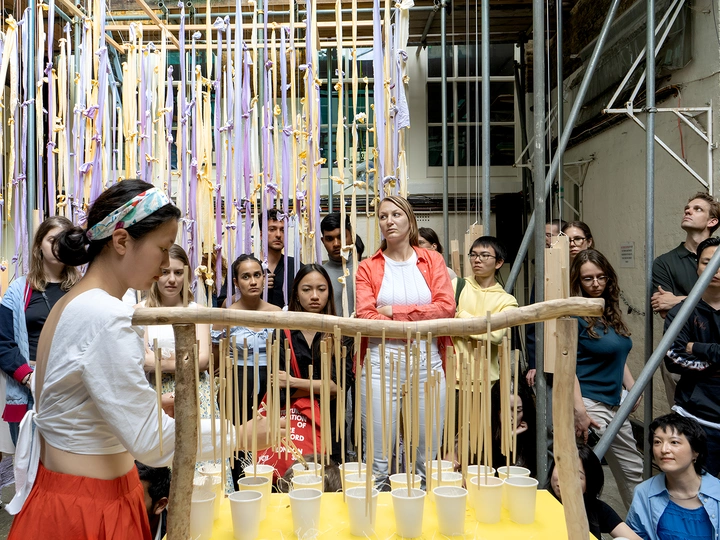The Octopus’s Garden

Xinyi Lei
Milo McLaughlin Greening
Michael Smythe
Andrea Veneri
Marco Veneri
Aude Vuilliomenet
Carole Wright
We are a duo of spatial practitioners and researchers based in Rome (IT) and London (UK), with professional and academic backgrounds in architecture and urban design. Our work sits at the intersection of art, ecology, design and curatorial practice. We engage in the research and development of tools and creative methods that can enable socio-ecological renewal. We seek to enable and facilitate community development and spatial and social transformations through participatory and tactical actions, temporary projects, pedagogy and collaborative workshops.
Our current PhD academic research looks at ecological practices to explore the challenges and opportunities of meanwhile use in urban regeneration strategies. Seeking to establish a format of practising that can engender ideas, concepts and approaches to the city and its development using forms of gardening and farming on a local scale as tools to engage community and imagine alternative futures.
In our practice, we use a curatorial approach to involve designers, sound artists, choreographers, dancers and urban farmers, together with the public in experimental projects and workshops that address collaborative ways to tackle the social and environmental degradation of urban environments. In 2022 and 2023, we organised and led The Octopus’s Garden, a three-week cross-disciplinary workshop at the Architectural Association aimed to broaden participants' perspectives on urban ecologies through collaborative and hands-on activities while incrementally and collaboratively designing and making a garden.
Our interest lies in rediscovering and defining an artistic mode of doing embedded in daily life practices and rediscovering craft, situated, performative and embodied practices, and collaborative design & making. In seeing ourselves as facilitators and technicians, we are interested in the broader synergies that such an approach to practice can establish and how these could trigger wider impact and action.
The Octopus’s Garden is a nomadic, cross-disciplinary and experimental workshop organised by OFF-POF bringing together architects, environmental designers, artists, and the public to enact/stage a temporary occupation of a space and its transformation into a garden of sorts.
The idea of acting like octopuses, scavenging, reusing and assembling found objects on the bottom of the sea to build shelters was both our method to build a garden with found or scrap materials, but also an attempt to start interacting and camouflaging into our environment, dissolving our separation from it. Through the days from planting and gardening sessions, group drawing, food growing, collective building project, foraging walks, cooking sessions, presentations and lectures, happenings and celebrations, while making the garden, we aimed at exploring the potential to capitalise on "the now" as a fleeting but meaningful time to design and to act.
Watching people grow, collaborate and make sense of each other, taking initiative and care, and reinventing themselves as cooks, craftsmen, hosts and performers gave us insights into how daily life rituals and the use of simple techniques can become important tools in recovering and enhancing collective creative capacities. That a garden is the plot where broader social and environmental transformations can happen: an open, emergent and dynamic field where the collective enacting, staging and reinvention of these rituals can transform the sensibility and awareness of the people involved.
Gardening like an octopus can be framed as critical, pedagogical spatial practice. A process that can be crafted to facilitate collaboration and group creativity, providing new approaches to environmental awareness and action. A creative practice that can support the developing of new relationships with the environment through the body, construction and communication. One connected to the necessities of the present with a stake in the future.